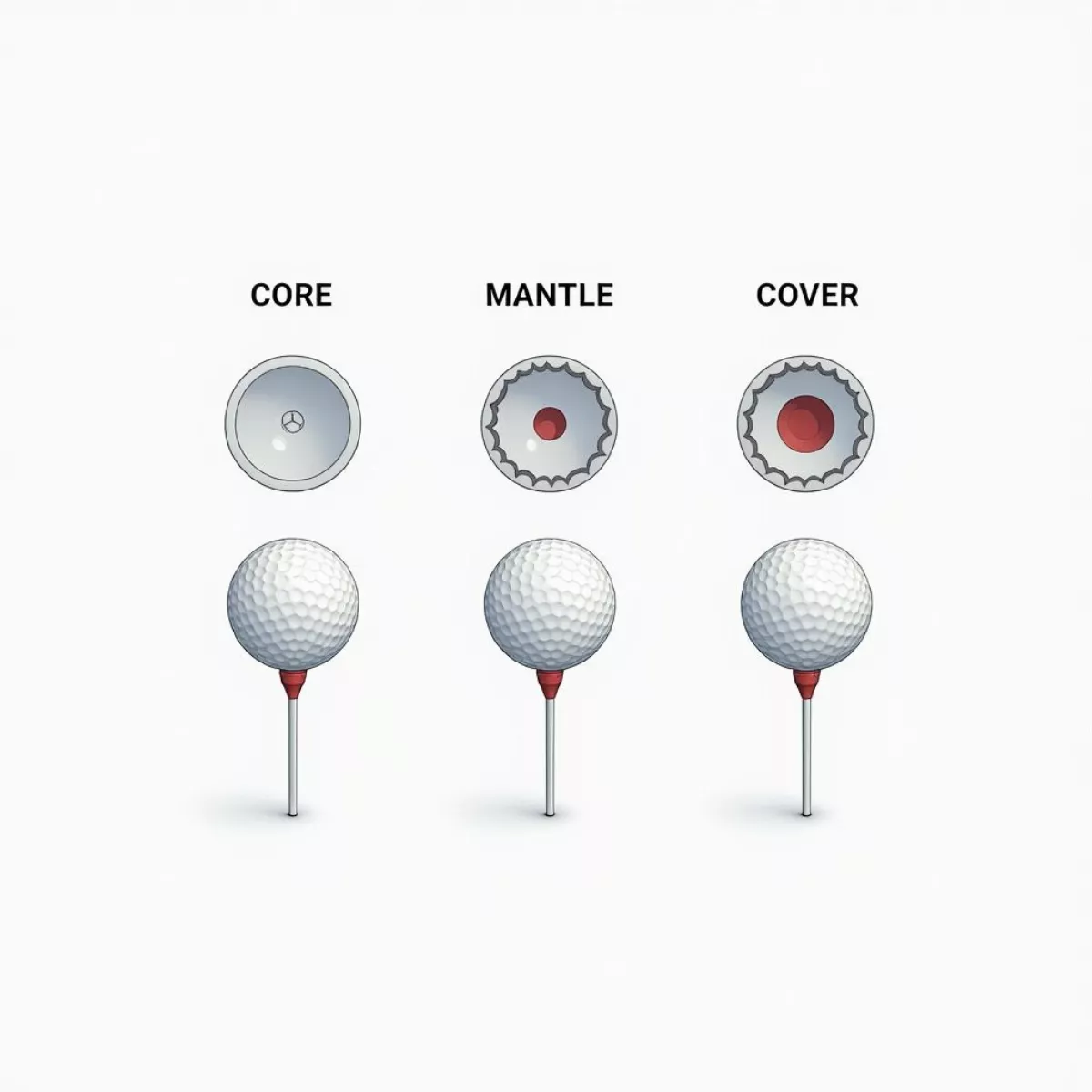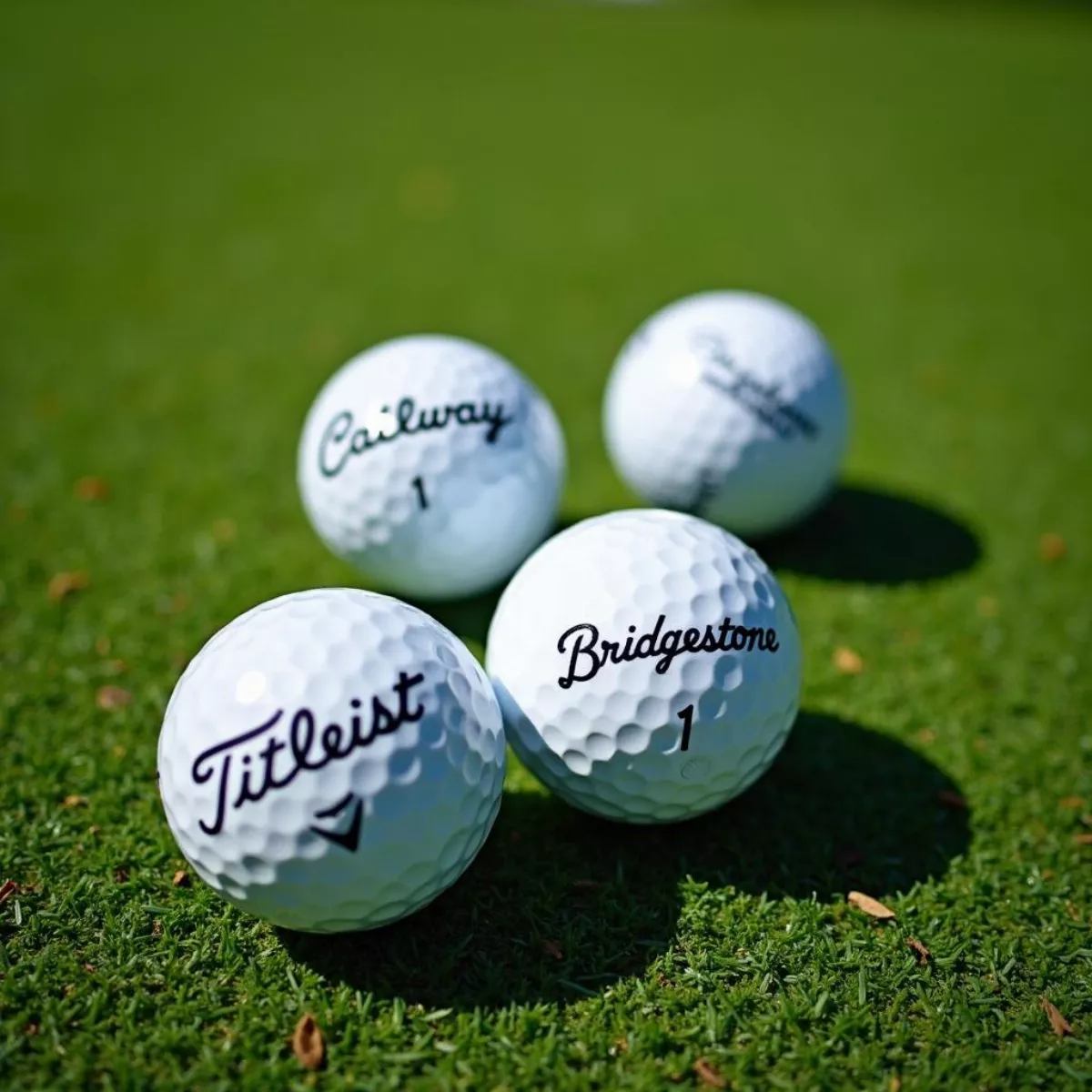Golf is as rewarding as it is challenging, especially for those navigating the transition from beginner to mid-handicapper, generally ranging from 10 to 18. One important aspect of your game that can significantly impact your performance is your golf ball choice. In this guide, we’ll discuss everything you need to know about selecting the best golf balls for mid handicappers. By the end, you’ll be equipped to make an informed decision that could elevate your game.
Understanding Golf Ball Basics
The Anatomy of a Golf Ball
Before diving into recommendations, let’s break down the structure of a golf ball:
- Core: The inner layer that determines ball speed and compression.
- Mantle: The layer between the core and the cover, contributing to spin and control.
- Cover: The outer layer, which affects feel and durability.
Types of Golf Balls
Golf balls can be categorized mainly into two types: two-piece and three or four-piece balls.
- Two-Piece Balls: Generally more durable and provide longer distance. They are ideal for beginners and higher handicappers.
- Three or Four-Piece Balls: Offer more control and spin due to their advanced construction. Recommended for mid-handicappers looking to improve their game.
Compression Ratings
Compression affects how the ball performs based on your swing speed. Here’s a quick guide:
- Low Compression (60–70): Best for slower swing speeds (less than 85 mph).
- Medium Compression (70–90): Ideal for average swing speeds (85–95 mph).
- High Compression (90+): Suitable for faster swing speeds (95 mph and above).
Why Golf Ball Selection Matters for Mid Handicappers
As a mid handicapper, optimizing your equipment, like choosing the right golf ball, is essential for lowering your scores. The right golf ball can:
- Enhance distance: A distance ball optimizes flight and reduces drag.
- Improve control: A more advanced ball can help achieve better spin around the greens.
- Boost feel: A softer cover can lead to a better touch on delicate shots.
Factors to Consider When Choosing Golf Balls
- Swing Speed: Match your ball’s compression rating to your swing speed.
- Playing Style: Consider whether you prioritize distance or feel.
- Budget: Quality golf balls usually come at a higher price, but it’s an investment in your game.
 Types of Golf Balls
Types of Golf Balls
Top Golf Balls for Mid Handicappers
Here, we’ve compiled a list of highly recommended golf balls suitable for mid handicappers:
| Brand & Model | Type | Compression | Price Range | Notable Features |
|---|---|---|---|---|
| Titleist Pro V1 | Three-Piece | 90 | $$ | Superb feel, great spin control |
| Callaway Chrome Soft | Three-Piece | 75 | $$ | Excellent distance and soft feel |
| Bridgestone B XS | Three-Piece | 85 | $$ | Great for greenside spin, forgiveness |
| Srixon Z-Star | Three-Piece | 80 | $$ | Enhanced distance with a softer feel |
| TaylorMade TP5 | Five-Piece | 85 | $$$ | Top spin control, great for all swing speeds |
Product Recommendations
- Titleist Pro V1
Price: $48 per dozen
Why it’s great: Chosen by many professionals, the Pro V1 delivers unmatched feel and control, essential for improved short game performance. - Callaway Chrome Soft
Price: $39.99 per dozen
Why it’s great: This ball combines distance and a soft feel, helping to maintain speed and accuracy with every shot. - Bridgestone B XS
Price: $44.99 per dozen
Why it’s great: Designed for players who can generate higher swing speeds, the B XS provides superior greenside control.
 Golf Balls on Green
Golf Balls on Green
Tips for Testing Golf Balls
When testing golf balls, give each one a fair evaluation with these steps:
- Put Each Ball Through the Paces: Test for distance on drives, feel on chips, and performance on putts.
- Track Your Scores: Record scores and performance with different balls to determine which consistently yields the best results.
- Be Patient: It may take time to fully understand how each ball performs under various conditions.
Key Takeaways
- Selecting the right golf ball is crucial for mid handicappers aiming to enhance their performance.
- Consider compression, playing style, and budget when choosing a golf ball.
- Some top-notch options include the Titleist Pro V1, Callaway Chrome Soft, and Bridgestone B XS.
- Testing the balls yourself will yield the best results for improving your game.
 Golfer Selecting Golf Ball
Golfer Selecting Golf Ball
FAQ Section
1. What is the best golf ball for mid handicappers?
The best ball depends on personal preference, but options like the Titleist Pro V1 and Callaway Chrome Soft are often recommended.
2. How do I know if a golf ball’s compression is right for me?
Match the ball’s compression to your swing speed. If your swing speed is around 85 mph, a medium compression ball is ideal.
3. Are more expensive golf balls worth it?
Generally, higher-priced balls offer better technology and performance, but value can vary based on personal play style.
4. Can I use a two-piece ball as a mid handicapper?
Yes, while two-piece balls typically suit higher handicappers, they can still deliver good performance for mid handicappers, particularly for those focusing on distance.
5. How often should I replace my golf balls?
Replace your golf balls when you notice visible wear and tear, or if they lose performance or feel.
6. Do different golf balls perform differently in cold weather?
Yes, cold weather can affect the performance and feel of golf balls. Soft balls may harden in cold weather, impacting distance and spin.
7. Is there a ball that excels in both distance and feel?
While no ball perfectly balances both, models like the Callaway Chrome Soft aim to provide a harmonious blend of both attributes.
8. Can I mix golf ball brands during a round?
Yes, but consistent use of one brand or model can help you adapt to its performance characteristics.
9. What is the impact of ball cover material?
The cover material (surlyn or urethane) affects durability and feel. Urethane covers typically offer more spin and feel for short-game shots.
10. Do all golf balls feel the same?
No, feel varies between models. It’s crucial to find a ball that aligns with your preference for touch and performance.
In conclusion, selecting the right golf ball can feel overwhelming, but this guide simplifies the process. By considering your swing speed, playing style, and personal preferences, you can choose a ball that not only fits your game but also enhances it. Ready to tee off? Happy golfing!

